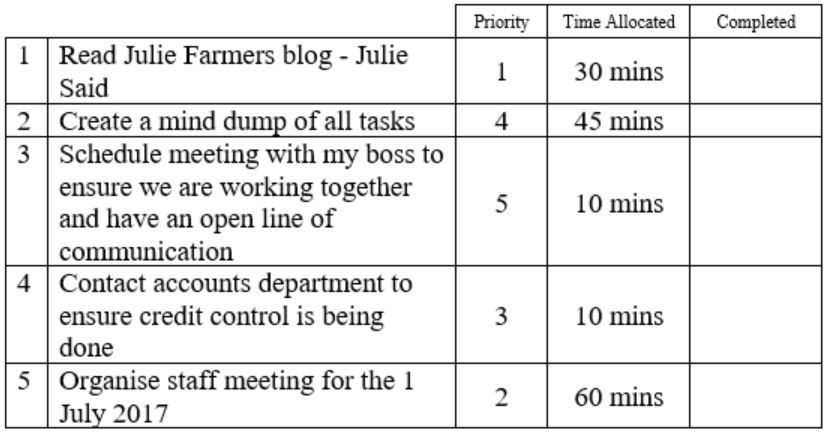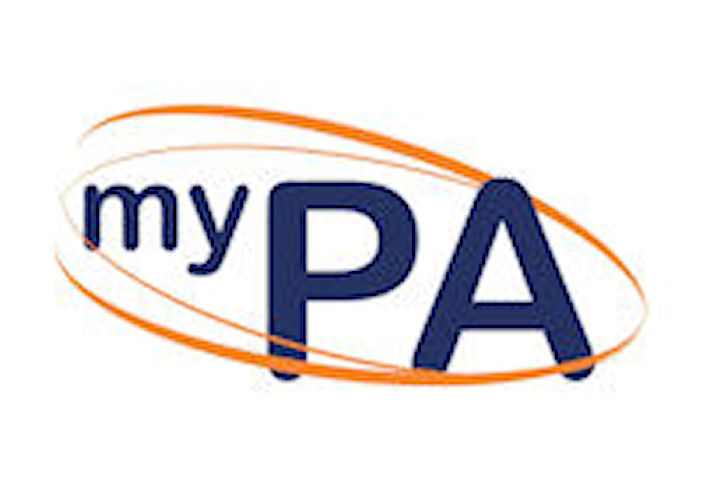
Planning your day to be proactive
When you think of a PA or a Secretary, you immediately think of someone organised, who is ultra-efficient and has their hand on the heartbeat of the department or their Boss’s Day. In effect, being proactive. Being Proactive is management speech stating that ‘a person is creating or controlling a situation rather than just responding to it after it has happened’.
The role of a PA or Secretary is to be organised. To see what has occurred in the past and the consequences of that event. To see what will happen now and what will take place in the future and then act accordingly. This is a great philosophy if you understand how to become Proactive.
The opposite of being proactive is reactive. This is often a state people find themselves when life and a workload can get too much to do, and you end up firefighting. This may then result in opening emails first thing in the morning and spending the entire day replying, auctioning and planning. Being reactive does not lead to your inbox reducing, but your workload increasing.
To move from being reactive to proactive can take some time. However, anything that is worthwhile will always take time. Here are our seven steps to becoming proactive:
- Schedule your work at the beginning of the day. Anyone that attends one of our training course will know, that I recommend that any PA or Secretary should schedule a maximum of 5 tasks a day. Any more than this would result in tasks being left off a list and forgotten.
- Any task that has been buffeted on to a different day more than three times is a task that needs to be examined and determined if the task is a task you should be doing. Can it be delegated to someone else, or should it be done?
- Ensure you have a realistic time frame to complete your five There is no point in scheduling five tasks if you know that task 1 will take 12 hours. You need to be realistic with yourself and your workload. If you have too much to do, ask for help or guidance on which task needs to be completed and by when.
- Let your colleagues know that you have scheduled certain tasks at certain times in your day. Start to train them to stop disturbing you when you are
- Discuss your proactive tasks with your boss, to ensure that your tasks are in line with his objectives and company strategy. There is little point spending time organising the Christmas Party if you have a launch for a new product that should take precedent.
- Write your tasks down daily to ensure that you know which tasks should complete that day. If you need to schedule a task for a weeks’ time, then get a diary or notebook and schedule it. See below. Notice that I have only scheduled part of my day. An ideal aim would be to have 60% of your day to be proactive with 40% reactive.

Planning to be Proactive
- Create a mind dump list. List every single job you need to undertake; from ordering the milk to contacting the marketing department. Every task you have to do. This will clear your mind of all the tasks that need completing. It will help you to chunk all tasks together. Finally, it will give your head time to rest and concentrate on your five
In conclusion, being proactive ensures that your workload is organised, up to date and you would never miss an important meeting, date or business goal. Therefore, organising your day in this manner demonstrates your understanding of your PA or Secretary role.
Personal Reflection on being Proactive
I have been organising my day and tasks in the way for many years and have found the system to be very efficient and easy to maintain. I have incorporated this system into a diary function. An example can be found here. However, I would recommend that you create a system that works for you in your company and daily life. If a diary, like the one attached, is not suitable, then take an A4 notebook and use that as your task list. If you have any questions or would like some further help, then please contact me.
You may also be interested in:
1 SMART Objectives for PA and Secretary
2 Preparation for the Appraisal Process
3 New Year’s Resolution for a PA, EA and Secretary


